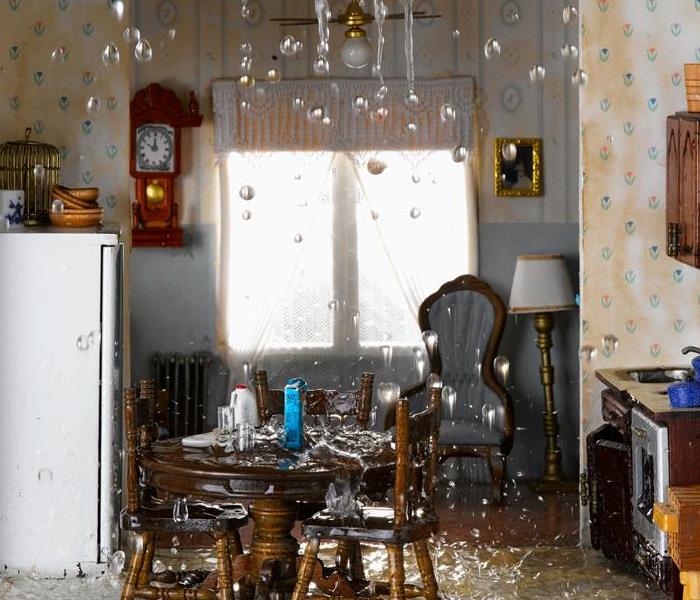Know what your homeowners insurance policy covers!
2/12/2024 (Permalink)
Pipe leaking under the sink can create water damage
Most homeowners insurance policies help cover water damage if the cause is sudden and accidental. Homeowners insurance may help pay for repairs if for instance, your drywall is wet after your water heater ruptures or if an upstairs pipe bursts and water saturates the ceiling below.
Depending on the damage, two types of coverage within a homeowners insurance policy may apply.
Dwelling Coverage
Dwelling Coverage helps pay for damage to the structure of your home if it's damaged by a covered peril. So, if a pipe suddenly bursts and damages a wall, dwelling coverage may help pay for repairs.
Personal Property Coverage
Personal Property Coverage helps pay for damage to your belongings if they are damaged by a covered risk. So, if a pipe bursts and results in water damage to your computer or bookcase, personal property coverage may help pay to repair or replace the damaged items.
Keep in mind that a deductible will likely apply before your coverage kicks in. Also, coverage limits may apply. Read your policy to find out how much coverage you have. Your agent can help you adjust your coverage to fit your needs or answer questions about your policy.
DOES HOMEOWNERS INSURANCE COVER WATER DAMAGE FROM LEAKING PLUMBING?
Homeowners insurance may help cover damage caused by leaking plumbing if the leak is sudden and accidental, such as if a washing machine supply hose suddenly breaks or a pipe bursts. However, homeowners insurance does not cover damage resulting from poor maintenance. So, if damage results after you fail to repair a leaky toilet, for example, homeowners insurance likely will not pay for repairs.
WHAT TYPES OF WATER DAMAGE ARE NOT COVERED?
Homeowners insurance does not cover certain types of water damage.
Damage from Unresolved Maintenance Issues
Your homeowners insurance will probably help cover the cost of replacing or repairing a damaged floor, if your dishwasher malfunctions and causes a flood. Be aware that coverage generally will not kick in if the damage results from an unresolved maintenance issue, such as continuous leaking near a faucet or other plumbing fixture.
Replacing or Repairing the Source of the Water Damage
Most homeowners insurance policies will not cover the source of the water damage. So, while your policy may cover the cost of tearing out and replacing that damaged floor, you shouldn't expect it to cover the cost of replacing your broken dishwasher or washing machine.
Water Backup from an Outside Sewer or Drain
You also will not typically be covered by a traditional homeowners policy if water backs into your home through an outside sewer or drain. You may, however, be able to purchase additional sewer or water backup coverage that may help cover damage from that type of event.
Flood
No type of flood damage, no matter the source of the water, is covered by standard homeowners policies. Flooding, for example, can occur from storms, over-saturated ground, overflowing or surging bodies of water such as rivers, ponds, lakes and oceans. You may be able to purchase a separate flood insurance policy through the National Flood Insurance Program.
While it's important to keep up with home maintenance to help prevent damage from water, it's also a good idea to check with your agent about what is and is not covered by your homeowners policy. Be sure to inquire about any additional coverages that may be available to you.





 24/7 Emergency Service
24/7 Emergency Service